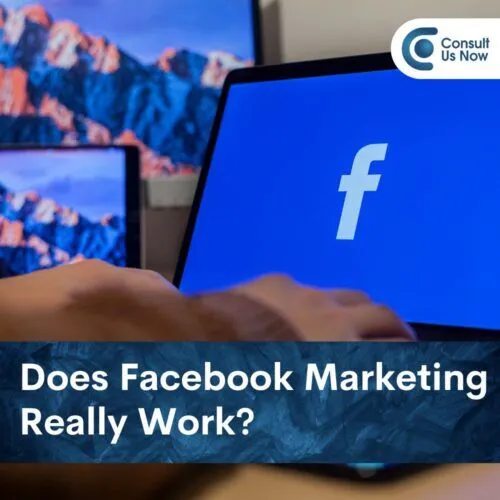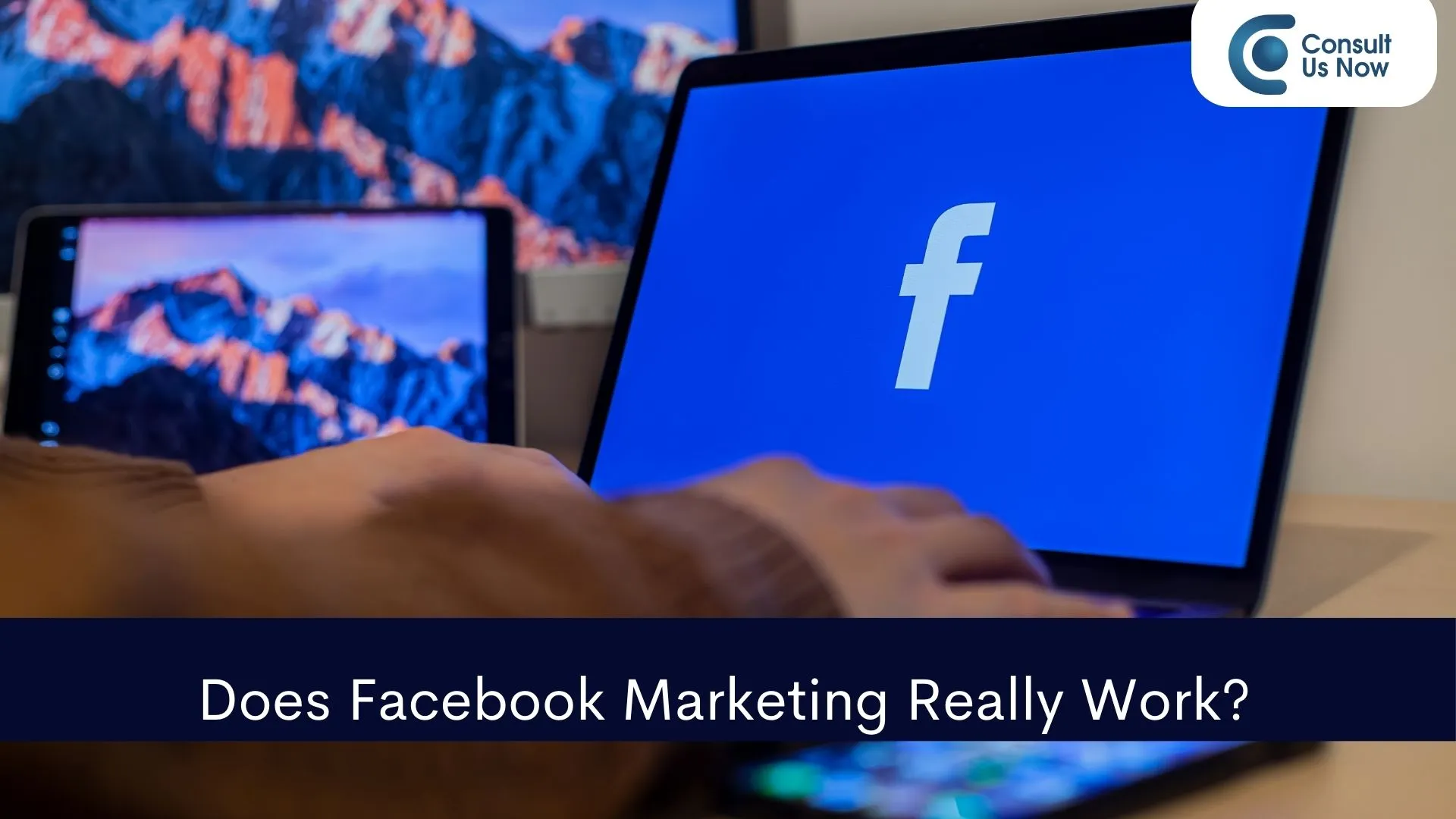Does Facebook marketing really work?

Introduction
Facebook is one of the largest social media platforms in the world, with over 2.9 billion monthly active users. This makes it an attractive platform for businesses to promote their brand, products, or services. Facebook offers a range of advertising options, including sponsored posts, video ads, carousel ads, and more, that allow businesses to reach a targeted audience based on demographics, interests, behaviors, and more.
But the question remains, does Facebook marketing really work? Let’s explore some of the reasons why Facebook marketing can be an effective marketing strategy for businesses.
Large Audience Reach
Targeted Advertising
Facebook’s ability to target specific audiences based on demographics, interests, behaviours, and more is one of its most powerful features for businesses.
Demographic targeting allows businesses to reach people based on characteristics such as age, gender, location, education, and income. For example, if a real estate business is targeting high-end luxury properties, they can target their ads to individuals with a high income or net worth. If they’re promoting affordable housing, they can target their ads to individuals with a lower income.
Interest targeting allows businesses to reach people who have expressed interest in specific topics or activities. For real estate businesses, this could include interests such as home décor, architecture, or DIY projects. Additionally, Facebook allows businesses to target people based on their activities, such as home buying or renting, recent moves.
Behavioral targeting allows businesses to reach people based on their online behaviour. For example, if someone has recently engaged with real estate-related content on Facebook, they may be a good candidate for a real estate business to target with an ad. Facebook also allows businesses to target people based on their past purchases, mobile device usage, and more.
Custom audience targeting allows businesses to reach people who have already interacted with their brand in some way. This could include people who have visited the business’s website, engaged with their social media content, or even past customers. By targeting these individuals with personalized messaging, businesses can increase their chances of generating repeat business or referrals.
Overall, Facebook’s targeted advertising feature allows businesses to reach their ideal customers with the right message at the right time. By using a combination of demographic, interest, behavioural, and custom audience targeting, real estate businesses can save money on advertising while also increasing their chances of generating leads and conversions.
Cost-Effective
Measurable Results
Facebook provides businesses with a range of metrics and analytics that allow them to track the performance of their advertising campaigns. These metrics provide businesses with valuable insights into how their ads are performing and how they can optimize their advertising strategy for better results.
One of the primary advantages of Facebook’s advertising metrics is that they provide businesses with a clear understanding of the return on investment (ROI) for their advertising spend. Businesses can track metrics such as cost per click (CPC), cost per thousand impressions (CPM), and conversion rate to determine the cost-effectiveness of their campaigns.
Another advantage of Facebook’s advertising metrics is that they allow businesses to track user engagement with their ads. Businesses can see how many people are clicking on their ads, how many are commenting or sharing their content, and how long people are spending viewing their ads. This information can help businesses optimize their ads for maximum engagement and impact.
Facebook also provides businesses with the ability to track their audience demographics and behavior, including age, gender, location, and interests. This information can be used to refine targeting for future campaigns, ensuring that ads are shown to the most relevant audience.
In addition to these metrics, Facebook also provides businesses with tools for A/B testing, allowing them to test different ad formats, messaging, and creative to see what works best with their target audience.

